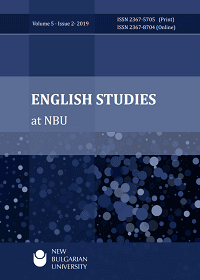Echoes of the Infernal Machine: 1940s French and English Literature of Resistance and Collaboration as a Revolution in the Mythic Imagination
Echoes of the Infernal Machine: 1940s French and English Literature of Resistance and Collaboration as a Revolution in the Mythic Imagination
Author(s): Tadd Graham FernéeSubject(s): Social Sciences, Language and Literature Studies, Education, Theoretical Linguistics, Studies of Literature, Phonetics / Phonology, Morphology, Lexis, Semantics, Pragmatics, Comparative Linguistics, Comparative Study of Literature, French Literature, Higher Education , Phraseology, British Literature, American Literature
Published by: Нов български университет
Keywords: 20th century modernism; English-French literary comparison; Malcolm Lowry; Jean-Louis Curtis; Jean Cocteau; French Resistance; anti-colonial struggle; Indian philosophy; Structuralism and myth; gender
Summary/Abstract: This article comparatively examines French and English literature based on two novels published in 1947, Malcolm Lowry’s Under the Volcano and Jean-Louis Curtis’ The Forests of Night. Both novels employ the mythic device to construct narratives on the twilight of the British Empire and the German occupied French Vichy regime, respectively, depicting experiences of resistance and collaboration on the eve of and during the Second World War. Both invent a system of symbolic imagery modelled on the Surrealist template in Jean Cocteau’s The Infernal Machine, that turns the classical mythic device still prevalent in the early 20th century (i.e. in Joyce or Eliot) upside down. The revolution in Mythic Imagination follows the Structuralist Revolution initiated by Durkheim, Saussure and Bachelard, evacuating fixed ontological architecture to portray relational interdependency without essence. These novels pursue overlapping ethical investigations, on “non-interventionism” in Lowry and “fraternity” in Curtis. The novels raise questions about the relation between colonialism and fascism and the impact of non-Western mythic universes (i.e. Hinduism) upon the Mythic Imagination. They have implications for our understanding of gender relations, as well as the value of political activism and progress.
Journal: English Studies at NBU
- Issue Year: 5/2019
- Issue No: 2
- Page Range: 220-246
- Page Count: 27
- Language: English

